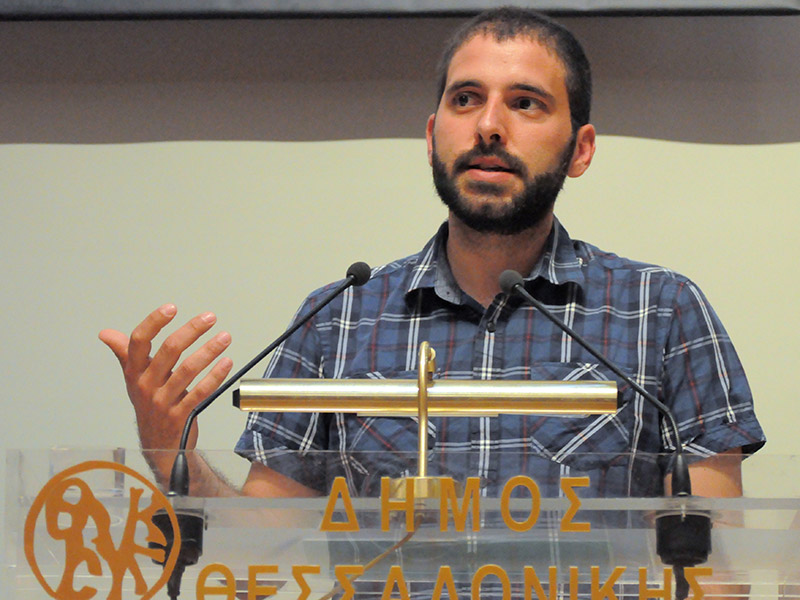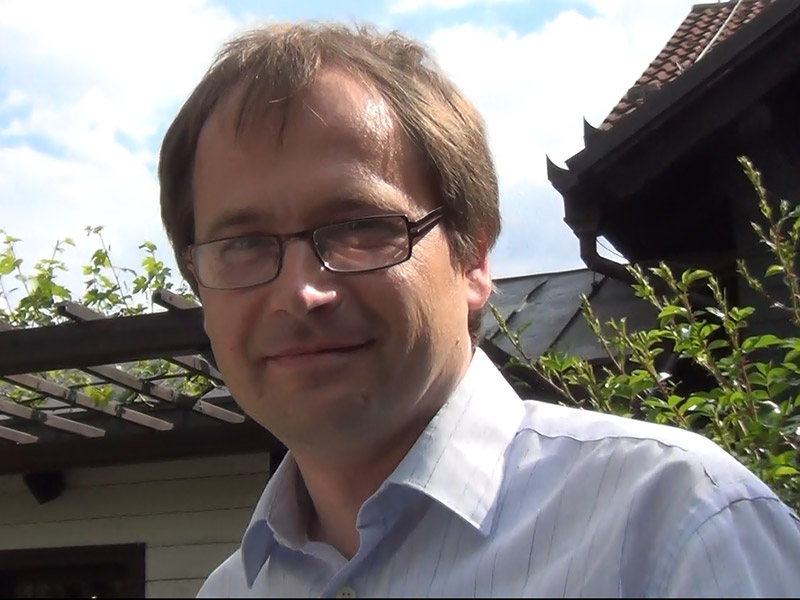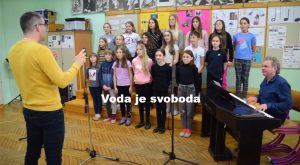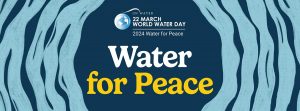[av_textblock size=” font_color=” color=”]
Cilji konference: Prioriteta projekta Vodni agent so partnerstva in vzpostavljanje mreže z ciljem ustvarjanja mednarodnega sodelovanja pri zagotavljanju učinkovitega delovanja na področju zaščite vode in vodnih virov.
Voda in vodni tokovi ne poznajo meja. V skladu z tem moramo vsi skupaj pokazati odgovornost za varovanje, zaščito in ohranjanje vode v prvi vrsti na osebnem nivoju. Na konferenci boste spoznali projekt Vodni agent, modele sodelovanja z sorodnimi projekti, strokovne teme iz področja vodo oskrbe in aktivnosti naših koordinatorjev v šolah.
Konference Društva vodna agencija so priložnost, da se predstavijo dosežki v razvoju projekta Vodni agent v šolah širše regije, predstavijo sorodni projekti z katerimi vzpostavljamo partnerstva in vsi skupaj spoznamo novosti in rešitve katere ponujajo proizvodno tehnološki procesi na področju dobave pitne vode in čiščenja odpadnih voda.
Program konference:
Petek, 27. Oktobar 2017 – Konferencijski dan
09.30 – 10.00 Registracija udeležencev/ osveženje za dobrodošlicu
10.00 – 10.30 Pozdravni govori
Jože Cvetko, Predsednik Društva vodna agencija
Majda Adlešić , Vodja mednarodnih programov Društva vodna agencija
Dr. Igor Šoltes, Evropski poslanec, Pokrovitelj konference
Leon Behin, Generalni direktor, Direktorat za vode in investicije, MOP Republike Slovenije
10.30 – 12.30 Projekt Vodni agent in sinergija z projekti v regiji
10.30 – 10.40 Projekt Vodni agent, Marijana Kolenko, Ravnateljica OŠ Lava, Celje, Slovenija
10.40 – 10.50 Mobilna Vodna postaja, Rok Capuder, Zavod 404, Ljubljana , Slovenija
10.50 – 11.00 Učna vodna pot, Marija Čakš, Kostrivnica, Slovenija
11.00 – 11.10 Značaj izvirov naravnih mineralnih vod, Mag Aljaž Čoh, Rogaška Slatina, Slovenija
11.20 – 11.30 Vodni agent Vol. 2.0. Mrs. Michaela Jerabkova , IREAS, Češka Republika & Mr. Bence Cseke , IMRO, Madjarska
11.30 – 11.40 Tablični računalniki v nižji razredni stopnji osnovne šole, Marlena Bogdanović, Učiteljica – mentor, OŠ Tučepi, Hrvaška
11.40 – 11.50 Hermanov brlog- Herman Lisjak vodi po vodi , Mag. Jožica Trateški, Muzej novejše zgodovine, Celje, Slovenija
11.50 – 12.00 Evropske kampanje civilne družbe za pravico do pitne vode, David Sánchez Carpio, Food & Water ICRO Europe, Belgija
12.10 – 12.20 Voda u edukaciji za trajnostni razvoj in ekološkem izobraževanju, Teuta Skorin, Udruga Lijepa naša, Zagreb, Hrvaška
12.20 – 12.30 Vodni detektiv: spodbujanje trajnostnega razvoja in kompetentnege društva, Mag. Marta Vahtar, ICRO Institut, Slovenija
12.30 – 12.45 Kratka pavza (kava-čaj-osvežitev)
12.45 – 14.00 Razvoj projekta Vodni agent v sodelovanju z resornimi podjetiji
12.45 – 13.40 Metode zbiranja surove vode in postopki priprave pitne vode ter čiščenje odpadnih voda, Miha Kordiš, Hidroinženiring d.o.o., Ljubljana, Slovenija
Smernice za digitalizacijo – Voda Vol. 4.0. Rok Koren, Siemens d.o.o., Ljubljana, Slovenija
Transport vode skozi vodovodne i kanalizacijske sisteme, Damijan Volf, KSB d.o.o., Ljubljana, Slovenija
Vodne izgube na distribucijskem omrežju, Mr. Jurica Kovač, Sekretar IWA, Zagreb, Hrvatska
13.40 – 13.50 Čistilna naprava odpadnih vod Slavonski Brod, Korana Ambrozić, PU Vodovod Slavonski Brod, Hrvatska
13.50 – 14.00 Projektiranje in konstruiranje čistilne naprave odpadnih vod na Zlatiboru, Dragana Topalović, Opština Čajetina,Srbija
14.00 – 14.40 Pavza- kosilo, osvežitev za udeležence
14.40 – 16.00 Predstavitve koordinatorjev projekta Vodni agent u osnovnih šolah
14.40 – 14.50 Sanja Mojić & Sladjana Radulović, učiteljice OŠ Žarko Zrenjanin, Novi Sad, Srbija
14.50 – 15.00 Natalija Pobežin, učiteljica Prva osnovna škola Rogaška Slatina, Slovenija
15.00 – 15.10 Jasminka Podhraški, učiteljica OŠ Viktora Kovačića, Hum na Sutli, Hrvaška
15.10 – 15.20 Staša Hočevar Zajc, učiteljica OŠ Toneta Pavčka, Mirna Peč, Slovenija
15.20 – 15.30 Ljubica Milić, učiteljica & Milan Spasojević, ravnatelj OŠ Kosta Trifković, Novi Sad, Srbija
15.30 – 15.40 Marina Drndarski, prof. biologije OŠ Drinka Pavlović, Beograd, Srbija
15.40 – 16.00 Podelitev izobraževalnih paketov šolam & Konferencija za novinare
16.00 – 18.00 Voden ogled ljubjane
[/av_textblock]
[av_hr class=’default’ height=’50’ shadow=’no-shadow’ position=’center’ custom_border=’av-border-thin’ custom_width=’50px’ custom_border_color=” custom_margin_top=’30px’ custom_margin_bottom=’30px’ icon_select=’yes’ custom_icon_color=” icon=’ue808′]
[av_textblock size=” font_color=” color=”]
Sodelovati:
[/av_textblock]
[av_tab_container position=’sidebar_tab sidebar_tab_left’ boxed=’border_tabs’ initial=’1′]
[av_tab title=’David Sánchez Carpio’ icon_select=’no’ icon=’ue800′ font=’entypo-fontello’]

[/av_tab]
[av_tab title=’About David Sánchez Carpio’ icon_select=’yes’ icon=’ue81f’ font=’entypo-fontello’]
David Sánchez Carpio is Food & Water Europe’s Director, based in Brussels. Food & Water Europe is the European programme of Food & Water Watch, a nonprofit organisation based in the United States that champions healthy food and clean water for all, standing up to corporations that put profits before people and advocating for a democracy that improves people’s lives and protects our environment.
David was born in Madrid, Spain, in 1980. He studied Environmental Sciences at the Universidad Autónoma de Madrid and holds a MSc in Ecology. He worked in environmental education programs in Spain and Portugal. As an activist he has been involved in the Spanish and European food sovereignty movements, in campaigns against genetically modified crops, factory farming and agrofuels, advocating for agroecology and promoting local food networks.
At Food & Water Europe he works together with local grassroots movements in campaigns for safe, accessible, sustainable public water. He also runs campaigns against factory farms, that are polluting water and impacting communities across Europe.
He can be found at dsanchez(at)fweurope(dot)org and www.foodandwatereurope.org
[/av_tab]
[av_tab title=’European civil society campaigns for the right to water and water as a commons’ icon_select=’yes’ icon=’ue864′ font=’entypo-fontello’]
There is a broad consensus among European citizens: water is a common good, not a commodity, and its management shouldn’t be privatized. This same message at global level was the driver of the recognition of the Human Right to Water and Sanitation at the United Nations.
For decades corporations have pushed for the privatization of public services – including water. In Europe several attempts supported by the European Commission have been launched since the neoliberal wave of the 90’s. Countries affected by the austerity crisis – Ireland, Greece – are still resisting water privatization imposed by the Troika. Water is also on the negotiation table of the new wave of free trade agreements like TTIP, TISA or CETA, which contains several provisions that put public water management, and water resources under international trade mechanisms.
Citizens around Europe have successfully organised themselves to defend public water management. Massive communication and mobilisation campaigns have organized referendums in cities like Berlin, Madrid or Thessaloniki and countries like Italy. In Slovenia, a citizens’ initiative succeeded to introduce the right to water in the Constitution. At European level, the demand to introduce the Human Right to Water in EU legislation was the first successful European Citizen’s Initiative, doubling the necessary number of signatures, up to nearly two million.
Civil society has succeeded to communicate the importance of protecting water resources and keeping them under public control, proving the high potential of water as a organizing and educational topic.
[/av_tab]
[/av_tab_container]
[av_tab_container position=’sidebar_tab sidebar_tab_left’ boxed=’border_tabs’ initial=’1′]
[av_tab title=’Aljaž Čoh’ icon_select=’no’ icon=’ue80f’ font=’entypo-fontello’]

[/av_tab]
[av_tab title=’About Aljaž Čoh’ icon_select=’yes’ icon=’ue81f’ font=’entypo-fontello’]
Aljaž Čoh MSc, BSc (Chem) was born in Celje in 1967. After graduation at the Faculty of Chemistry and Chemical Technology of the University of Ljubljana in 1992, he took up a post at the mineral water bottling plant of the Rogaška Slatina spa. In 1996 he completed a master’s degree in chemistry at the Faculty of Chemistry and Chemical Technology in Ljubljana.
He is employed at Atlantic Grupa in Droga Kolinska, d.d, Operations Rogaska in Rogaška Slatina. He works in the fields of research and development, quality assurance and natural mineral waters and non-alcoholic beverages technology. He is the President of the Association of Bottlers of Packaged Waters of Slovenia and is a member of the Quality & Regulatory Committee at the European Federation of Bottled Waters (EFBW).
[/av_tab]
[av_tab title=’The importance of natural mineral water sources’ icon_select=’yes’ icon=’ue864′ font=’entypo-fontello’]
Natural mineral waters hold through legislation a special position among foodstuffs. From a technological point of view, it is important that the process of bottling natural mineral waters be conducted in such a way as to preserve the characteristic properties such waters have at their springs. From the dietary aspect it is important to point out that among other things, natural mineral waters acts as a carrier for biologically important minerals which are involved in many metabolic processes. Consequently, natural mineral waters can be an ideal low-energy foodstuff that provides our body with the necessary quantities of liquid and supplies biologically important minerals at the same time.
Because of their underground origin (hydrogeological conditions, structure of the rock, length of subterranean watercourses, time spent below the surface of the earth, carbon dioxide content) natural mineral waters differ from each other in terms of both the types and quantity of dissolved mineral substances. They are actually a mirror of the subterranean conditions from which they come to the surface, either in natural outflows or through boreholes. We could even say that natural mineral waters are the sap of the Earth.
The stability and diversity of the composition of natural mineral waters are two essential features from the dietary aspect as compared to other water types. However, at the same time, many of them, especially those which contain great amounts of mineral substances, are in many countries basis for development of natural spas, because they possess beneficial physiological effects on human organism.
[/av_tab]
[/av_tab_container]
[av_hr class=’default’ height=’50’ shadow=’no-shadow’ position=’center’ custom_border=’av-border-thin’ custom_width=’50px’ custom_border_color=” custom_margin_top=’30px’ custom_margin_bottom=’30px’ icon_select=’yes’ custom_icon_color=” icon=’ue808′]
[av_promobox button=’yes’ label=’Prenesite program’ link=’manually,https://vodnaagencija.org/wp-content/uploads/2017/10/3rd-International-Conference-Water-agency-Ljubljana-October-27th-2017.pdf’ link_target=” color=’theme-color’ custom_bg=’#444444′ custom_font=’#ffffff’ size=’large’ icon_select=’no’ icon=’ue800′ font=’entypo-fontello’ box_color=” box_custom_font=’#ffffff’ box_custom_bg=’#444444′ box_custom_border=’#333333′]
3rd International Conference Water agency – Ljubljana – October 27th 2017
[/av_promobox]
[av_promobox button=’yes’ label=’Prenesite program’ link=’manually,https://vodnaagencija.org/wp-content/uploads/2017/10/Konferencija-Vodna-agencija-2017.pdf’ link_target=” color=’theme-color’ custom_bg=’#444444′ custom_font=’#ffffff’ size=’large’ icon_select=’no’ icon=’ue800′ font=’entypo-fontello’ box_color=” box_custom_font=’#ffffff’ box_custom_bg=’#444444′ box_custom_border=’#333333′]
Konferencija – Vodna agencija 2017
[/av_promobox]
[av_textblock size=” font_color=” color=”]


[/av_textblock]





